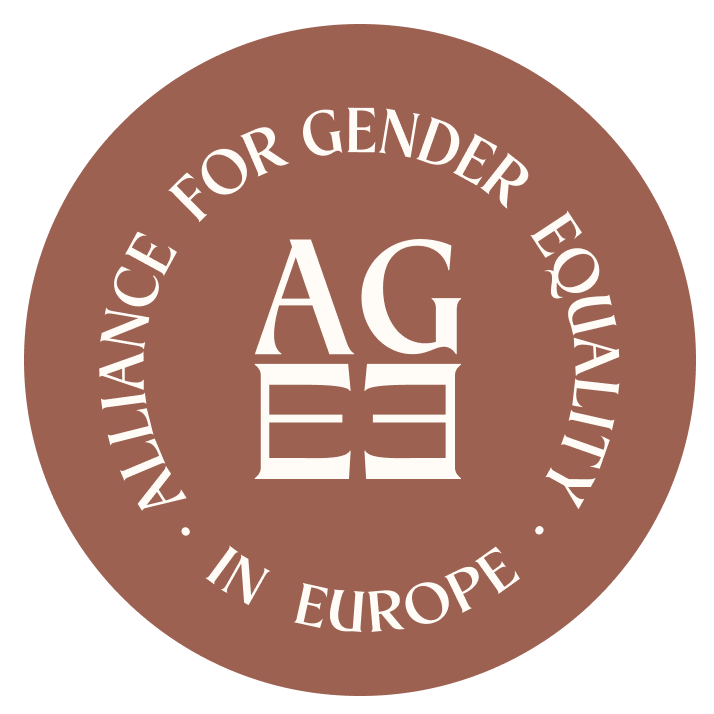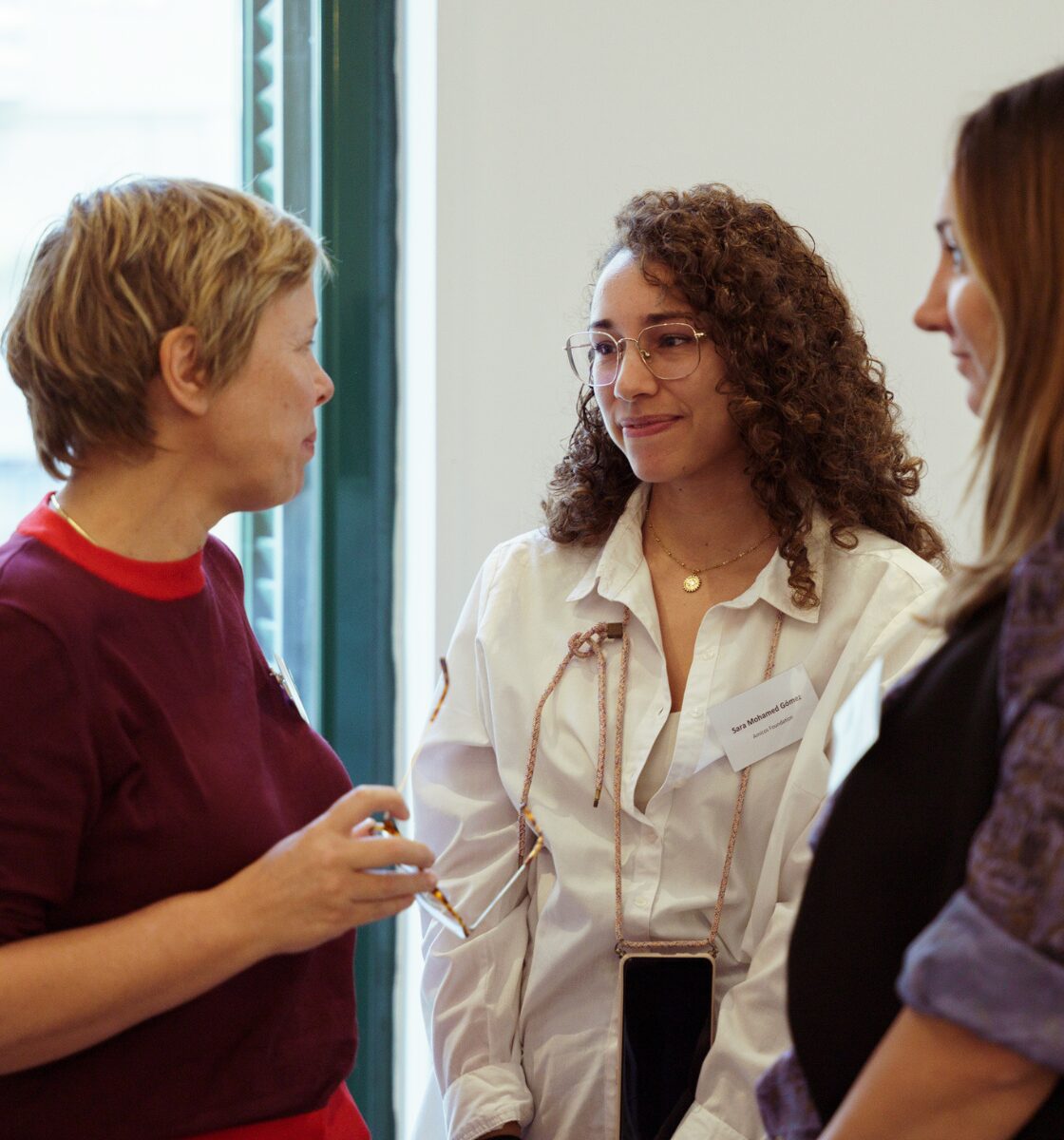As we approach the end of the first three-year funding cycle of the Alliance for Gender Equality in Europe, we find ourselves in a moment of reflection and learning.
Launched in 2021, the Alliance set out to fill an urgent funding gap and advance gender equality across the EU and UK by supporting grassroots organisations through grantmaking, capacity building, and awareness raising. Over the past three years, the Alliance has supported 38 grantees with over €4 million in project and core funding to build a more just, inclusive, and fair Europe.
As the only pooled fund in Europe dedicated to gender equality, the Alliance has also seen impressive growth, doubling its membership and increasing its budget five-fold. Our grant sizes and durations have also increased.
To ensure our next steps are informed by an understanding of our contributions, lessons learned, and opportunities for greater impact, we commissioned an independent external evaluation. The aim of this evaluation was to assess our work, gather stakeholder perspectives, and shape our future direction. It involved an in-depth review of programme documents, a survey completed by 23 grantees, and over two dozen interviews with members, grantees, advisors, experts, and other stakeholders.
This process was guided by our commitment to learning collaboratively and improving our practices, as well as our belief in the importance of transparency and accountability. By openly sharing the evaluation findings, we aim to contribute to a broader conversation in philanthropy about how funders can better support grassroots organisations driving lasting change and inspire continued collective action towards gender equality.
Key findings from external evaluation
1. The primary role of the Alliance is to fill the funding gap.
It is clear that the Alliance’s primary contribution is to fill a widening funding gap for gender equality in Europe, while also mobilising and advocating within philanthropy for greater resourcing of the field. The limited funding available, coupled with the growing anti-gender movement, poses a threat to hard-won rights and creates a hostile environment that restricts what grassroots organisations can achieve.
“The funding for gender in Europe is just abysmal, period. The funding that is there, particularly from the EU, is extremely restrictive.”
—
Quote from interview
2. The main benefit for member foundations is peer learning.
Well beyond the administrative efficiencies inherent to any re-granting organisation, members of the Alliance shared a long list of value-adds that they get from their participation in our donor collaborative. The shared sentiment is that the whole is greater than the sum of its parts. By joining forces, pooling resources, and learning together, members can fund in new geographies, expand their knowledge about the field, and connect with new organisations.
“By joining [the Alliance], this collective enables us to increase our impact.”
—
Quote from interview
As a result of their engagement in the Alliance, members highlighted the potential for changing their own internal practices, from trust-based grantmaking to organisational development.
“The biggest added value for us to engage is its potential to impact our own foundation’s practices for the better.”
—
Quote from interview
3. The Alliance has the potential to be a vehicle for philanthropic advocacy.
In addition to adding value to participating members, informants identified another key role for the Alliance: to raise gender equality higher on the funding agenda and build a movement within philanthropy for this.
“We have a need within European philanthropy to reflect on systems change grant-making.”
—
Quote from interview
Grantees also see the Alliance as an actor with potential to influence European philanthropy to fund the feminist movement or fund in ways that align with trust-based practices. In other words, money alone is not enough. This implies playing a greater advocacy and peer-influencing role among funders in the future. The growing number of generalist foundations in the Alliance is an indicator of some early success in this area.
4. Our funding goes where it’s needed most.
From grantees to external partners, the Alliance is seen as a much needed, timely, and relevant mechanism for supporting the organisations that need it most: small, frontline organisations.
“I love the approach of the Alliance… Its members understand those closest to the field are closest to the solutions. Women-led, migrant-led, grassroots organisations. This is the best way to strengthen the field of gender equality.”
—
Quote from interview
Most informants praised the fact that applicants can seek either project or core support. Funding to cover core operational costs provides real, tangible benefits to organisations, who are now able to hire or retain staff, strengthen their resilience and capacity, and maintain independence to deliver on their work.
“There are few donors who provide this type of support… We are struggling because so much funding for women’s rights and gender equality is project based.”
—
Quote from interview
Almost two thirds of organisations responding to the survey used the funding to cover core structure and to fund activities that otherwise would not have happened.
5. Clear and accessible application processes should remain a priority.
All informants found the outreach of the Alliance’s funding calls – and particularly the most recent one – to be very strong, as 370 concept notes were received. In the survey, most grantees rated very highly the clarity of the application process, and the guidance provided by the programme team, including via two informational webinars that were attended by more than 100 participants each. The majority of respondents found the webinars clear, informative, and helpful to understand the requirements for the application and the criteria used to select applicants.
“It really shows that everyone responsible for the process is really open to the needs and realities of the applicants.”
—
Quote from survey
In particular, some grantees highlighted the flexibility and straight-forward process, especially when compared to grantmaking practices of other funders.
“It was not complicated and it was not overwhelming.“
—
Quote from survey
To level the playing field, the Alliance also made available coaching support to 11 second-stage applicants who were identified as having more limited capacity compared to other applicants due to, for example, smaller budgets and teams. All applicants who received coaching indicated that they felt their proposal was stronger as a result of this support and 85% indicated that they feel more confident to apply to other calls for proposals.
Grantees suggested introducing a self-assessment to test eligibility, extending the length of time that calls for proposals remains open, accepting applications in multiple languages, and informing applicants about the due diligence processes at an earlier stage of the process.
6. When needs are greater than available resources, no mechanism is perfect – but new approaches should be explored.
One of the key challenges for open calls is the amount of time and effort that is required of the Alliance team to coordinate them. Competitive open calls also generate significant workload for the organisations applying, whereas chances for winning the grant are low. Of the 370 applications received in the last call, only 26 were selected, resulting in a 7% success rate for applicants. At the same time, respondents pointed at the benefits of open calls for proposals, which have allowed the Alliance to map gender equality organisations across Europe, as well as to support transparency and trust-building within the field.
The last thematic focus on economic inclusion was applauded for its relevance and ability to encompass a wide variety of activities and organisations. However, thematic calls can also exacerbate the dynamic in which funders influence and shape the agenda of the field, by having grant-seeking organisations adapt their strategies to what funders want to fund.
During the interviews, some also reflected on alternative approaches in order to diversify the frequency and thematic focus of grant announcements. Suggestions included:
- To continue with the theme of economic inclusion in order to deepen knowledge on this topic and capture results and impact.
- Movement building as a new theme, as it is broad and relevant to grassroots organisations.
- Democracy and gender as a theme, as many informants expressed a desire to focus on promoting democratic values and civic engagement as a way to counter the growing anti-gender movement.
- To provide emergent opportunities or emergency support, which could be provided through smaller grants outside of calls for proposals.
7. There is an opportunity to better leverage the power of convenings.
The Alliance has also supported networking and exchange between grantees, which has been greatly appreciated. There are calls to sustain this type of support by also providing the infrastructure for collaboration and collective projects that emerge from grantee convenings.
“[…] What we are now missing is some structure for developing projects together with other grantees.“
—
Quote from survey
8. The Alliance’s offerings for capacity strengthening are essential.
Grantees and funders have all expressed great enthusiasm over the Alliance’s offerings for capacity strengthening, which presently include: up to € 15.000 in organisational development grants and participation in a Feminist Leadership Hub, an online platform allows grantees to learn from each other and boost collaboration on specific topics.
Next steps
As we look ahead to our next phase, the feedback, insights, and recommendations gathered through this evaluation will inform our 2025-2027 strategic framework. What we have learned will help us improve our grantmaking, awareness-raising, and learning practices in order to better support the grassroots gender equality movement in Europe in the critical years ahead. This is because a well-resourced, intersectional, and impactful movement is the single most important building block for building more gender-equal societies. We remain proudly committed to our vision of an inclusive Europe where equality is achieved for all.
We are thankful to everyone who shared their feedback so openly and generously during this process, as well as to the consultants who gathered and synthesised these reflections.
Main photo: Vasso Paraschi/Alliance for Gender Equality in Europe.

